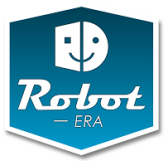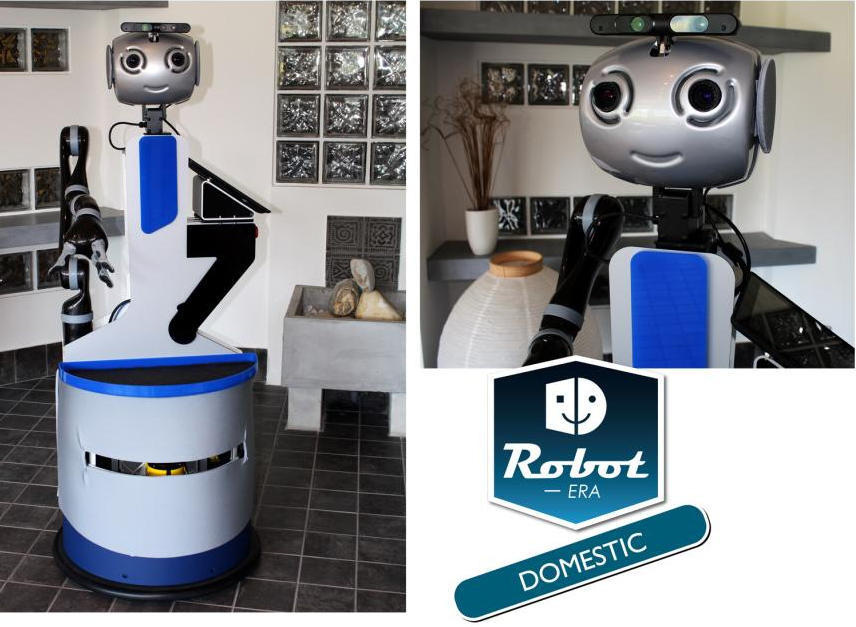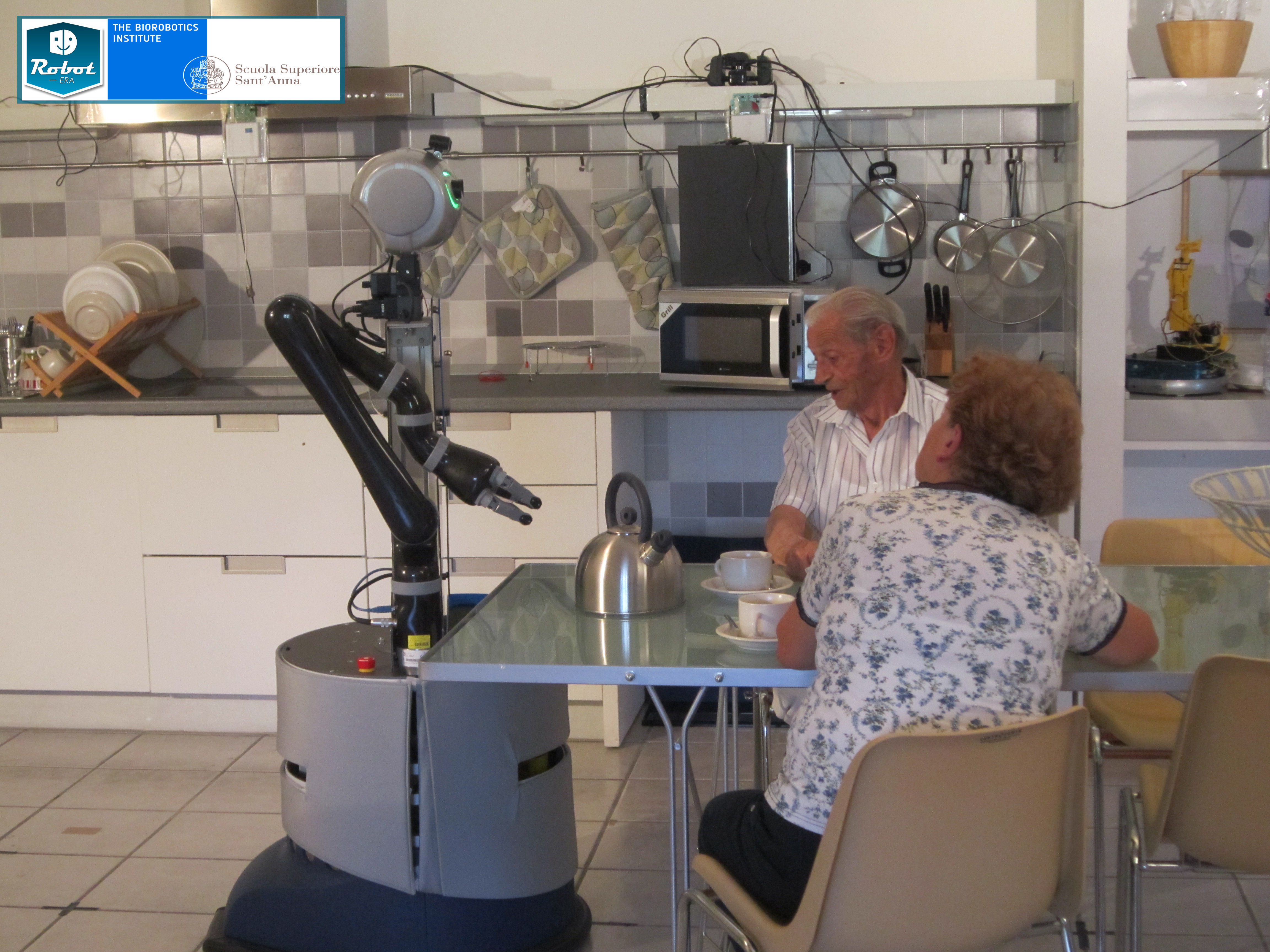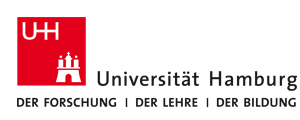Robot-Era— Implementation and integration of advanced Robotic systems and intelligent Environments in real scenarios for the ageing population

The Robot-Era Integrated Project is part of the EU's seventh Framework Programme (FP7).
The objective of the Robot-Era project is to develop, implement
and demonstrate the general feasibility, scientific/technical effectiveness
and social/legal plausibility and acceptability by end-users
of a plurality of complete advanced robotic services,
integrated in intelligent environments,
which will actively work in real conditions and cooperate with real people
and between them to favour independent living,
improve the quality of life and the efficiency of care for elderly people.
Summary | Consortium | Links |
Summary
The ambition of Robot-Era project is to significantly enhance the performance and acceptability of the current services to a new level of quality. Different already available and commercial robotic systems will be adapted and integrated to cooperate and operate in domestic, condominium and outdoor environments. The level of robotic services will be effectively enhanced thanks to the inclusion of cooperative robots that will be able to contemporarily act in indoor and outdoor environments, and of the AmI infrastructure, fully integrated in domestic and urban contexts that will facilitate the operations of robots, provide effective tools to supervise the various scenarios and ensure safe operations, and connect end-users, service providers and robots. The Robot-Era project aims to implement a fully realistic and real experimental setup in urban and domestic environments and with different kinds of citizens: the elderly users, the service providers, the municipalities, and the caregivers.
The main role of group TAMS is the overall design of the projects' Domestic Robot ("doro") which provides manipulation services to the users. Our current design integrates the proven Scitos G5 mobile platform (provided by project partner Metralabs Gmbh) with a set of standard sensors for navigation and envionment perception and the Kinova Jaco robot arm and three-finger hand. Sensors include fixed front and rear laser-scanners on the Scitos base as well as cameras and a Kinect on the moveable robot head. The custom cover ensures a nice appearance of the robot, to improve user accetability. The software architecture is based on ROS and integrates the Mira and Cognidrive framework from Metralabs for 2D-navigation and path-planning, while ROS MoveIt! is used for obstacle-aware robot-arm motions. The relevant skills of the robot are encapsulated as services which can be triggered by the user via a tablet-computer, speech-interface, or the PEIS ambient sensor network.


The project runs from 01/2012 until 12/2015, with a total EC funding of 6.35 Million Euros.
Consortium
- Scuola Superiore Sant'Anna (SSSA), Pisa, Italy
- Instituto Nazinale die Riposo e Cura per Anziani (INCRA), Ancona, Ital
- Youse GmbH (YOUSE), Berlin, Germany
- Orebro University (ORU), Orebro, Sweden
- Universitaet Hamburg (UHAM), Hamburg, Germany
- University of Plymouth (UOP) United Kingdom
- Metralabs GmbH Neue Technologien und Systeme (MLAB), Ilmenau, Germany
- ST Microelectronics Srl (ST-I), Italy
- RoboTech srl (RT), Peccioli, Italy
- TechnoDeal srl (TED), Peccioli, Italy
- Municipality of Peccioli (MOP), Peccioli, Italy
- Lansgarden Fastigheter Aktiebolag (LG), Orebro, Sweden
Pilot-Sites
The pilot sites for the experimentation of the Robot-Era services will be set in Peccioli (Italy) and Örebro (Sweden), which have already participated in several research projects as providers of places, facilities and general supports for realistic experiments, and their citizens have a proved attitude to test and use technology. Besides, since the sites are located in two different European areas, they give the possibility to study the impact of the service robotic technologies in European areas with different traditions, habits and culture.

